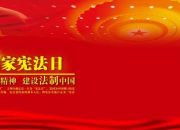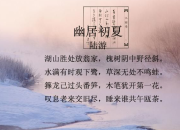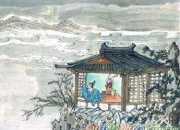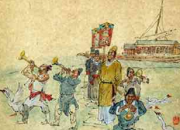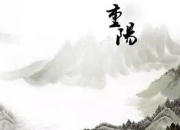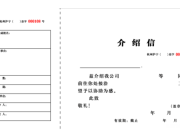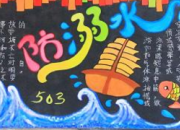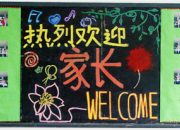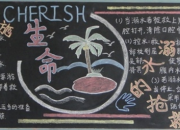家乡春节风俗作文
时间:2021-08-31家乡春节风俗作文1
“除夕真热闹,家家赶做年菜,到处都是酒肉的香味。男女老少都穿起新衣,门外贴上了红红的对联......”,每当我想起老舍写的那篇《北京的春节》,就仿佛看见了北京街头大人们忙碌的身影,孩子们快乐的身影,新绛也是这样的,一起来看我的老家——新绛的春节习俗吧。

说起春节习俗,大家一定会想到吃团圆饭。所谓团圆饭,顾名思义就是一家人团团圆圆坐在一起吃饭。在这一天,不管家人离家乡多远,都必须赶回来吃团圆饭。在新绛,吃团圆饭的时候,要发压岁钱,发完压岁钱后,就开始上菜。首先上来的是火锅,火锅热气腾腾,是祝福在外地做生意的生意兴隆,热热闹闹,红红火火。待火锅吃得差不多了,上来第二道菜——鱼,爷爷做得很好吃,口感好极了,入口即化的鱼是祝全家人年年有余(鱼)。最后一道菜是甜食,是奶奶做的甜米,一口下去,金黄的甜米又甜又粘,这是在祝愿全家的生活永远甜甜蜜蜜。
正月初一,大家都穿起新衣,贴好对联,走访亲戚,整个城市都沉浸在欢乐中。
小孩们最爱逛庙会,庙会上彩旗飘扬,有卖糖人的,有卖小吃的,有卖玩具的,还有散布在各处的游乐场。
虽然新绛是一个小县城,但这里的春节同北京那些大城市一样热闹!
家乡春节风俗作文2
My hometown is qingfeng, the customs of Spring Festival everywhere are different, various, but all have happy and happy meaning.
The twelfth lunar month is the coldest weather, and the laba festival in my hometown is almost the beginning of the Spring Festival, which means that we begin to prepare for the Spring Festival. In particular, the owner of the farm in his hometown will bring out the goods and buy them for the guests. Hometown of the laba festival marks the Spring Festival comes slowly, at the same time home have said such a saying "la seven laba, freezing jackdaws", this is the day to drink a bowl of sweet sweet laba rice porridge, hot in the stomach, warm warm heart. In this porridge, a variety of beans and rice are put into the porridge, which is made up of more than eight grains. This is not only porridge, but small agricultural exhibition.
At four or five o 'clock on the first day of the first month, there are five more customs in my hometown. I will start with my father, mother, uncle and aunt. Grandpa? Grandma kowtowed, and then to grandpa and grandma, ha ha ha, children can get more candy. After breakfast, we began to go to the temple fair, relatives, we can behind of adults and children to buy good things to eat, with relatives can also earn money, ha ha, the beauty in heart! I wish I had a big year! The evening show is to set off fireworks, looking at the blossoming flowers, it is really the heart of flowers. This is my rural hometown Spring Festival, is not very beautiful!
Because I like to hear the legend, let me tell you about it!
Legend has it that in ancient times, our ancestors were threatened by the fiercest beast. The beast is called nian, and it feeds on animals, and in the winter, when food is scarce in the mountains, it will break into villages, hunters and livestock, and the people will be terrified. People and "nian" have been fighting for many years, and people have discovered that there are three kinds of things, red color, firelight and sound. So in the winter people hang red peach boards on their homes, fire piles at the door, stay up all night, and knock. That night, "nian" broke into the village, and saw red and firelight in every house, and heard the sound of the earthquake, and ran back to the mountains, and dared not come out again. The night passed, and people congratulated each other, and they celebrated the victory with a feast and a feast.
How, after seeing our custom here, just know the local custom is not much difference!
家乡春节风俗作文3
说到我故乡的春节习俗,那可真多啊!让我给你细细道来。
贴春联:
春联也叫门对,春贴、对联、对子、桃符,等等。每逢春节无论是城市还是农村,家家户户都要精选一副大红春联贴与门上,为节日添加喜庆气氛。
贴福字
在贴春联的同时,大家要在屋门上、墙壁上,门楣上贴大大小小的“福”字。
拜年:
人们穿上最漂亮的衣服,扮的整整齐齐,出门走亲访友,相互拜年,恭祝来年大吉大利。
我最喜欢的就是除夕了。
因为我喜欢听那个传说,我给大家讲讲吧!
相传在远古时候,我们的祖先曾遭受一种最凶猛的野兽的威胁。这种猛兽叫"年",它捕百兽为食,到了冬天,山中食物缺乏时,还会闯入村庄,猎食人和牲畜,百姓惶惶不可终日。人和"年"斗争了很多年,人们发现,年怕三种东西,红颜色、火光、响声。于是在冬天人们在自家门上挂上红颜色的桃木板,门口烧火堆,夜里通宵不睡,敲敲打打。这天夜里,"年"闯进村庄,见到家家有红色和火光,听见震天的响声,吓得跑回深山,再也不敢出来。夜过去了,人们互相祝贺道喜,大家张灯结彩,饮酒摆宴,庆祝胜利。
怎么样,看了我们这儿的习俗,才知道各地习俗没多大差别吧!
家乡春节风俗作文4
世界各地都有自己本地的风俗,都具有强烈的民族特色,例如白族、蒙古族、傣族……我家乡的风俗也毫不逊色。
春节啦,家家户户都要吃美味的腊八粥和吃那鲜美的饺子。腊八粥有许许多多的干果熬成的,就像呢璀璨的星空,豆、米、花生、核桃……那都是美丽星星,在汤汁这个美丽的“宇宙”中闪烁着。当然,还要吃祭灶神,吃祭灶火烧。祭灶神当然要用十八个祭灶火烧和一些菜,给灶神当上天路上当干粮吃。祭完灶神,就要把这些食物瓜分。春节了,串门可是少不了的啊,到了亲戚家,小的都给老的拜年,还能得压岁钱。春节娱乐也少不了,家家户户都在放鞭炮,城市里也有人舞龙。在美丽的夜晚看烟花,在繁华的城市看舞龙,那是多么美好的一件事呀!
这就是我家乡的风俗习惯,你记住了吗?
家乡春节风俗作文5
莒国历史,源远流长,这里的春节必然会随着几千年的历史与文化而丰富多彩。
记忆中的.春节从腊月中旬就开始了,大家纷纷忙着看望亲朋好友,乐不可支。临近小年,大家又开始购买糖果、柿饼等年货,等腊月二十三晚上祭祀神仙,尤其是灶王爷。过完小年,人们就见缝插针地打扫房间,将自己的家收拾得一尘不染。
盼星星,盼月亮,久违的除夕终于到来了。这天,我总是先帮助爸爸把各种福字贴好,接着便能随心所欲地玩耍了。夜幕逐渐降临,妈妈端上一盘盘色香味俱全的饭菜,整整齐齐地摆上六只酒杯和六双筷子,姥姥倒上三分之一的白酒,倒三次,间隔约五分钟,说是先让神仙来吃。姥姥到阳台烧事先叠好的宝和打好的纸,我则给天底下各路神仙,家里的观音老母、灶王爷、财神爷烧香。大家一起磕头,以示尊重,祈求保佑。
神仙们吃完,我们一边看着春晚,一边相互敬酒,共享年夜饭。在精彩春晚的陪伴下,不知不觉就到了十二点,爸爸下楼放鞭,妈妈去煮水饺,我再把香烧一遍,吃几个饺子,倒头就睡。
一觉醒来,便是大年初一。先祝福家人一句“新年好”,穿上崭新的衣服,给长辈磕头拜年,说吉祥话,长辈就赠与红包。接下来的几天,无非就是拜年、待客,春节忙碌的影子也渐渐远去了。
年年岁岁,我们一如既往地过一年一度的春节,累并快乐着。


